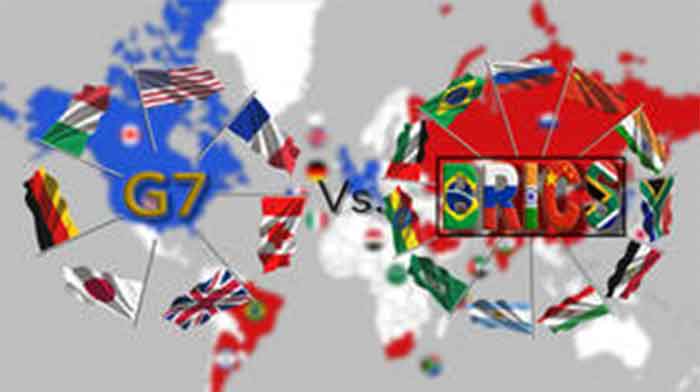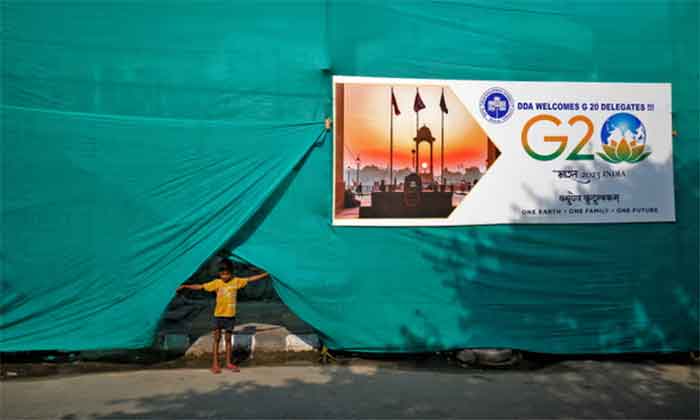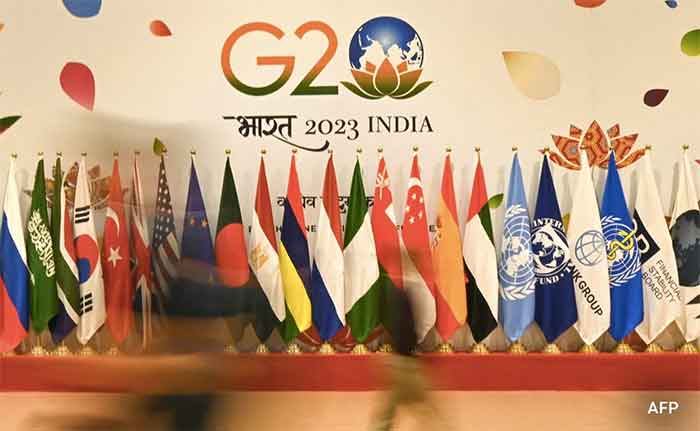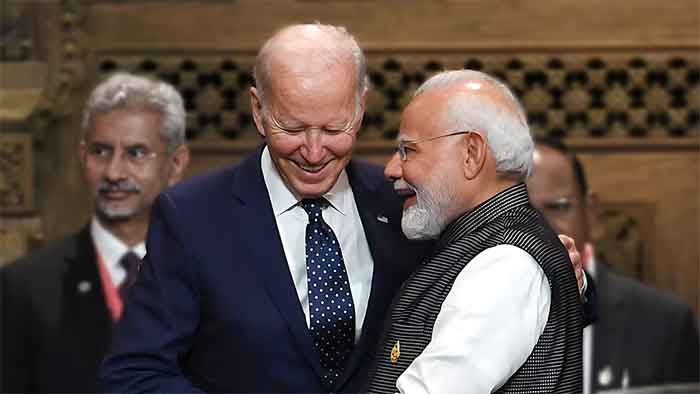Our rulers have changed the country’s name from “India” to “Bharat”. The first invitation from the head of the nation to senior delegates to attend a G20 dinner in Delhi has gone in the name of Bharat.
Bharat’s underbelly comprises of millions of disadvantaged people, eking out meagre livelihoods from occupations without which the country cannot move forward. However, like the proverbial ostrich, our leaders are averse to allow foreigners to see Bharat’s underbelly of poverty, reminding one of a mother, ashamed of her abject poverty, trying to hide her under-nourished children from the prying eyes of an affluent passerby.
The latest proof of this is the way our esteemed leaders are bending backwards to entertain foreign delegates attending the G20 meetings. These meetings have been routinely held around the world since 1999 in different cities of the host country. The frenzied efforts from prettying up the cities to keeping establishments including schools closed may appear comic but are truly tragic. What it has really done is to prevent poor hawkers, and small vendors, from selling their wares for sustenance. Add to this the trauma of the slum dwellers being uprooted to render poverty in “Bharat” invisible. Those were the very same people, whose lives were disrupted during the long Covid lockdown a few years ago. This time, in Delhi, they are facing yet another traumatic lockdown in connection with the G20 meetings.
I live in Visakhapatnam where thousands of small vendors eke out their livelihoods along the beach, near temples, bus stands, railway station and so on. This is at such places that a large chunk of their meagre incomes come. Most slums are located along main roads, or on hill slopes. Slums located along the main road connecting the airport to the city are major irritants to the civic authorities who ignore the fact that the people therein live in sub-human conditions without access to sanitation, potable water and other basic facilities. They live in makeshift shelters, exposed to sweltering heat during summer, rains and flooding during the monsoons. The local elected municipal body, which presides over a “smart city”, conveniently forgets its mandate to spend 40% of its budgetary resources on upgrading the facilities of slums, but prefers to beautify the affluent parts of the city.
The small vendors and hawkers, and the slum residents, who belong to the most disadvantaged sections of the society, are “encroachers” on government lands and face imminent threat of eviction, whenever a VIP visits the city, or when real estate developers with political clout wish to appropriate such lands. Sometimes, the authorities go on a rampage, often in a midnight swoop to take over the government land from such “encroachers”, as if they are non-citizens. It is a common sight to see slum residents being forcibly uprooted and relocated 10-15 km away in the outskirts of the city, far away from the location of their places of work. The new locations where they are dumped lack transport facilities, easy access to medical help, schools for children, and security. They spend half their daily wages on travelling to and from the city.
Changing the name of the country from “India” to Bharat” does not mean a thing to those unfortunate victims.
A couple of months ago, Vizag had the “honour” of hosting a G20 meeting. The officials went into a frenzy, as those coordinating such meetings from Delhi apparently asked them to “showcase” the city for the foreign delegates. In today’s Bharat, showcasing means hiding all signs of poverty, as Bharat believes it will soon catapult into a five trillion dollar economy, in which poverty should not be visible to those who count.
For a fortnight prior to circus-like manoeuvres for G20, officials brought bulldozers (bulldozers have since become mascots of strong leadership and development in India) to level the sand along the beach, as if natural sand dunes are ugly, brazenly violating the Coastal Zone Regulations issued under the relevant law for environmental protection. There were bulldozers busy removing vendors’ shacks along the beach, along the main streets which the G20 delegates are likely to visit. I came across a street vendor whose shack made of cheap metal sheets was crushed beyond recognition by one of those heartless dozers. Never mind that there is a law enacted in 2014 for safeguarding the rights of street vendors. Such laws become invisible when rulers seek to impress foreign delegates. On the one hand, we replace foreign-sounding names of cities, towns and streets with desi names and yet place on a pedestal those very people who colonised us in the past or exploiting us today. We try to convince them that Bharat has no poverty, that Bharat is a thriving digital economy, that Bharat can teach the art of governance to the rest of the world.
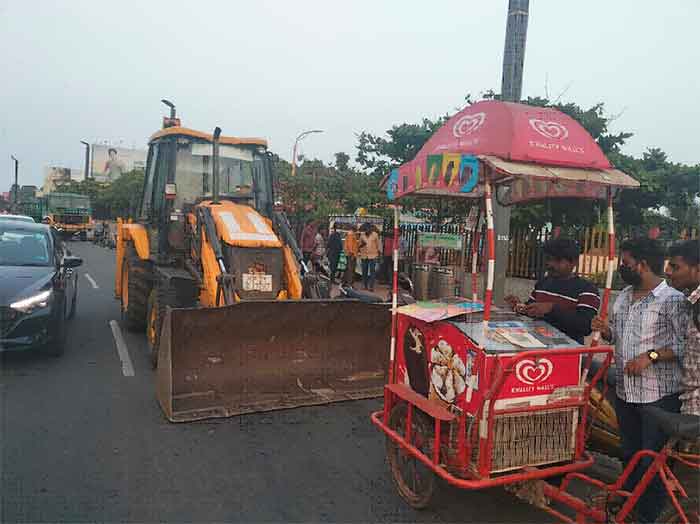
(Authorities with a bulldozer intimidating a street vendor)
Ironically, there exists a special scheme introduced by the Centre to give loans to street vendors (PM Street Vendor’s Atma Nirbhar Nidhi or SVANidhi Scheme)!
There is a colony of Chenchu migrant settlers located along the airport highway in Vizag. Chenchus are recognised as a “Particularly Vulnerable Tribal Group (PVTG)” entitled to special protection from the government. Despite this, at every stage, the Chenchus were forced to agitate for basic amenities to be provided to them. Their temporary shacks are not presentable to foreign delegates. As was done during the US President Trump’s visit to Gujarat, in the absence of any inclination or eagerness on their part to rehabilitate slums properly, the authorities found it easy to hide the slum. An innovative way to hide it is by “greening” it, a euphemism for covering it up with green tarpaulins, as evident from the following photograph.

Hiding a tribal slum with a green tarpaulin
What happened in Vizag perhaps represents the situation in most cities where G20 meetings are held. Of course, the climax of G20 is being witnessed in Bharat’s Rajdhani, Delhi.
It is certain that senior leaders who will attend the final G20 meeting in a sparkling Delhi will be greatly impressed at seeing the capital city cleansed of poverty, attending meetings at Bharat Mandapam developed at a cost of Rs 2,700 Crores, savouring the past and the present glory of the nation, witnessing Bharat’s Amritkal. They will also be taken round a “Mother of Democracy” exhibition. It is certain that the exhibition will not say a word about millions of those who are fighting for their existence in India. “Since January, hundreds of houses and roadside stalls have been demolished, displacing thousands of people. Dozens of shantytowns were razed to the ground, with many residents getting eviction notices only a short while before the demolitions got underway” (https://apnews.com/article/india-g20-new-delhi-poor 9d449f133d5ed0aa8855ee65485ce873)
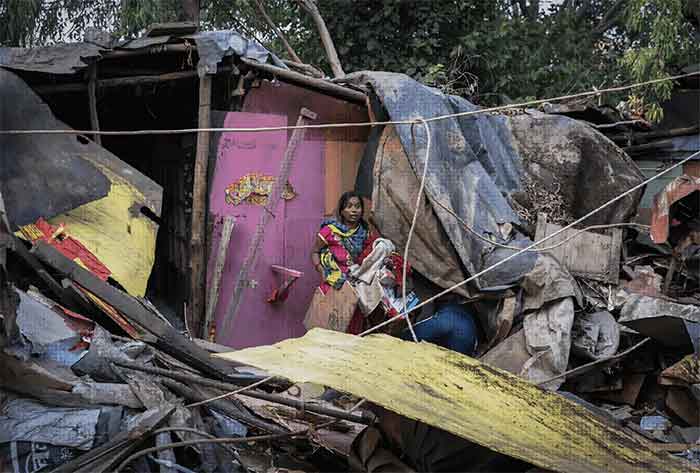
Khushboo Devi collects the usable items from the rubble of her house during a demolition drive by the authorities at a slum area, June 1, 2023 (https://www.reuters.com/graphics/G20-SUMMIT/SLUM/zdpxrxoaypx/index.html
Our rulers do not want foreigners to see the impoverished face of India because it represents their failure to govern and address their problems.
It is time that we the people, proud residents of Bharat, should ponder over what Gandhiji said about a nation’s greatness,
“A nation’s greatness is measured by how it treats its weakest members”
Gandhiji’s words were perhaps based on what different religions, including Hinduism, believed in.
For those who go eloquent these days on reminding us of the greatness of Sanatana Dharma, here is a lesson:
“the troubles which make us unhappy,…… the poverty and starvation, the competition and the crushing of the weak, and the countless evils round us, are all diseases of this great body, due to the parts of it getting out of order, and working separately and competitively without a common object, instead of working together as a unity for the good of the whole”
“Sanatana Dharma, An advanced text book of Hindu religion and ethics” published by the Board of Trustees, Central Hindu College, Benares (1904)
(https://www.rarebooksocietyofindia.org/book_archive/196174216674_10152693130586675.pdf)
E A S Sarma, Former Secretary to the Government of India

